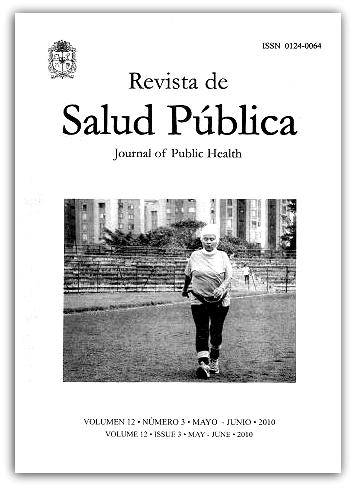Socio-political implications of the fight against alcoholism and tuberculosis in Colombia, 1910-1925
Palabras clave:
Social medicine, public health, alcoholism, tuberculosis (en)Medicina social, salud pública, alcoholismo, tuberculosis (es)
Descargas
The emergence of a modern state in Colombia and the centralization of political and administrative power in Bogotá began to take shape during the latter decades of the nineteenth century. The state had a central role within the overarching modernisation discourse that sought to create a common national identity. One of the tasks assigned to the state by the national project was that of implementing policy for regulating public health and strengthening social control institutions. Such objectives should be analyzed as part of larger political centralization processes and the desire to create “ideal” citizens. Public health and sanitary campaigns implemented by government officials during this period targeted vice, immorality, illness and ignorance under the umbrella of social reform programmes. Government officials, hygienists and medical doctors continually placed emphasis on eradicating or regulating alcoholism and tuberculosis from 1910 to 1925, with the hopes of avoiding a national crisis. This paper examines how alcoholism and tuberculosis became central themes in the fears expressed by Colombia’s ruling class at the time regarding the broader social decay of the nation. As intellectuals and public officials sought solutions to these ills, their explanations alluded to the disintegration of morality and values and the degenerative effects of vice, addiction and unsanitary conditions.
The emergence of a modern state in Colombia and the centralization of political and administrative power in Bogotá began to take shape during the latter decades of the nineteenth century. The state had a central role within the overarching modernisation discourse that sought to create a common national identity. One of the tasks assigned to the state by the national project was that of implementing policy for regulating public health and strengthening social control institutions. Such objectives should be analyzed as part of larger political centralization processes and the desire to create “ideal” citizens. Public health and sanitary campaigns implemented by government officials during this period targeted vice, immorality, illness and ignorance under the umbrella of social reform programmes. Government officials, hygienists and medical doctors continually placed emphasis on eradicating or regulating alcoholism and tuberculosis from 1910 to 1925, with the hopes of avoiding a national crisis. This paper examines how alcoholism and tuberculosis became central themes in the fears expressed by Colombia’s ruling class at the time regarding the broader social decay of the nation. As intellectuals and public officials sought solutions to these ills, their explanations alluded to the disintegration of morality and values and the degenerative effects of vice, addiction and unsanitary conditions.
Cómo citar
APA
ACM
ACS
ABNT
Chicago
Harvard
IEEE
MLA
Turabian
Vancouver
Descargar cita
Visitas a la página del resumen del artículo
Descargas
Licencia
Derechos de autor 2010 Revista de Salud Pública

Esta obra está bajo una licencia internacional Creative Commons Atribución 4.0.
Esta revista provee acceso libre inmediato a su contenido bajo el principio de que hacer disponible gratuitamente investigación al publico apoya a un mayor intercambio de conocimiento global.
Todos los contenidos de esta revista, excepto dónde está identificado, están publicados bajo una Licencia Creative Commons Atribución 4.0.





















